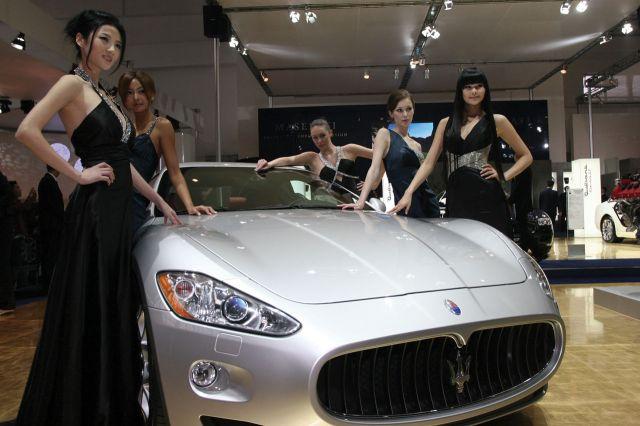I totally missed this info nugget and in case you did, too: Chinese women buy three times more Maseratis and twice as many Ferraris than Western women do.

A third of China’s millionaires are women, and they buy a disproportionately large share of high-performance sports cars in the world’s fastest-growing major economy. Fiat SpA said the percentage of women buying its Maseratis in China is triple that of Europe, while the percentage buying its Ferrari is double the global average, according to Bloomberg.
Sales of ultra-luxury vehicles in the world’s largest auto market likely increased 60 percent last year, according to consultants Bain & Co. Deliveries may increase 35 percent this year, driven by consumers wanting to prove their success or succumbing to peer pressure, said Ray Tsang, a Shanghai-based partner at Bain.
Women buyers generate 30 percent of Maserati’s China sales, compared with less than 10 percent in Europe, Shanghai-based Gobber said. The GranCabrio convertible with 433 horsepower costs $406,656 and the GranTurismo S coupe $391,527, the company said.
Ferrari’s China sales rose almost 50 percent to about 300 last year, the company said. Women account for about 20 percent of mainland sales, more than twice the company’s global average. A Ferrari California sports tourer costs $527,924 in China and about $200,000 in the U.S.
The rise of women entrepreneurs—more than half the world’s richest women are Chinese according to Hurun Report—is propelling their share of luxury spending, said FT.
”In China, women are ambitious…so they will buy more ‘high powered’ products than women in the US or Europe,” says Tom Doctoroff, greater China head of JWT, the advertising agency. “A woman here needs to project her power in ways that a western woman simply does not need to.”
In contrast, as western luxury brands tap the Chinese market, unlearning gender stereotypes along the way, China’s men purchase more face creams and bags. Coach, the US leather brand, says men represent 45 percent of the $1.7 billion Chinese market for luxury bags and accessories, compared with 15 percent globally, said FT. (They buy exotic cars as well, but I liked the stat on “man bags.” You can read more about designer handbags for upwardly mobile men in China here.)


